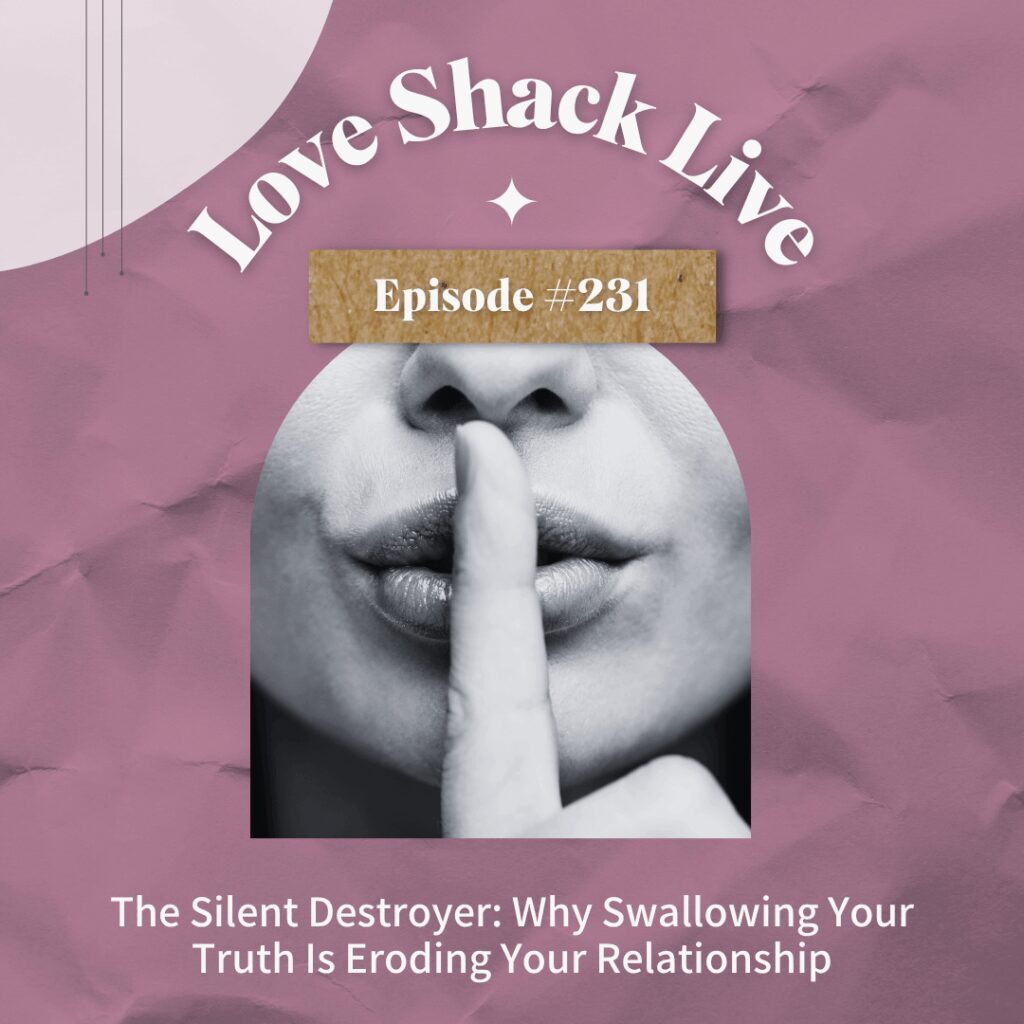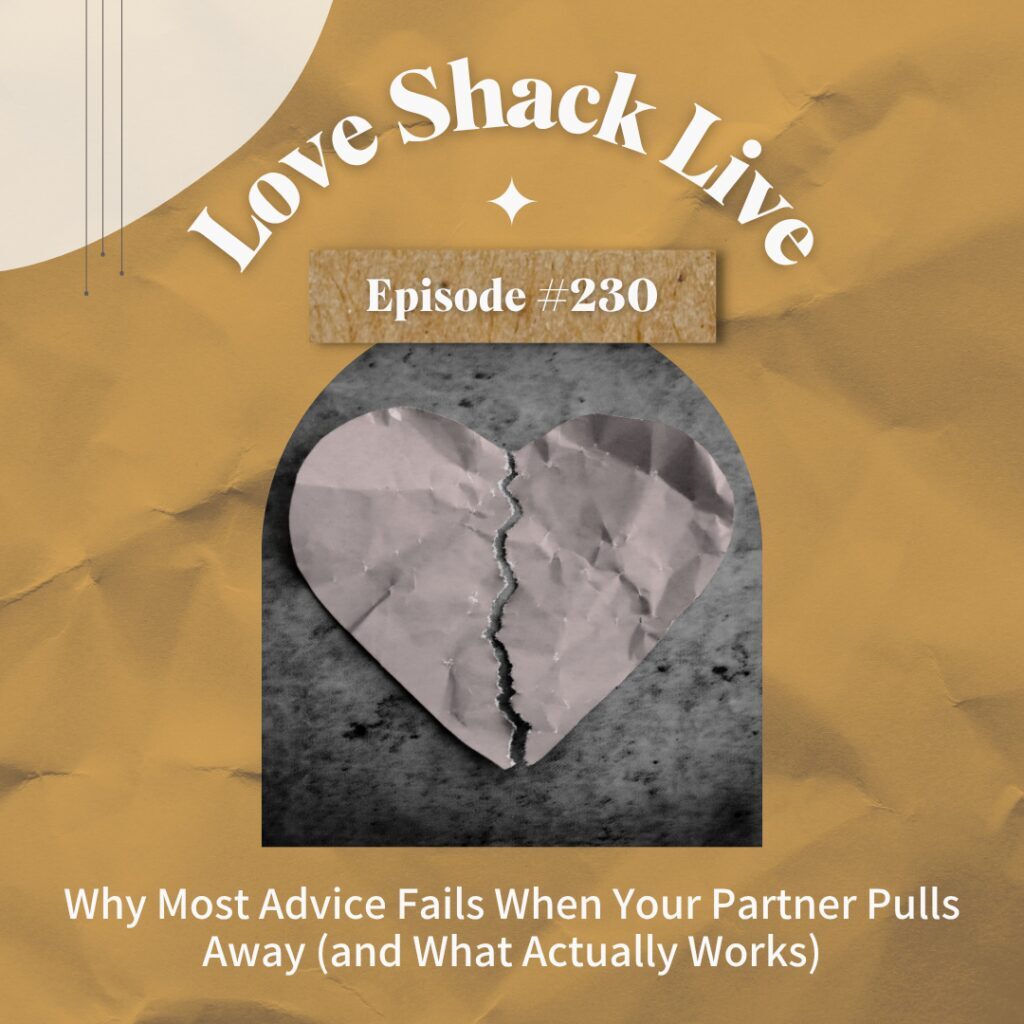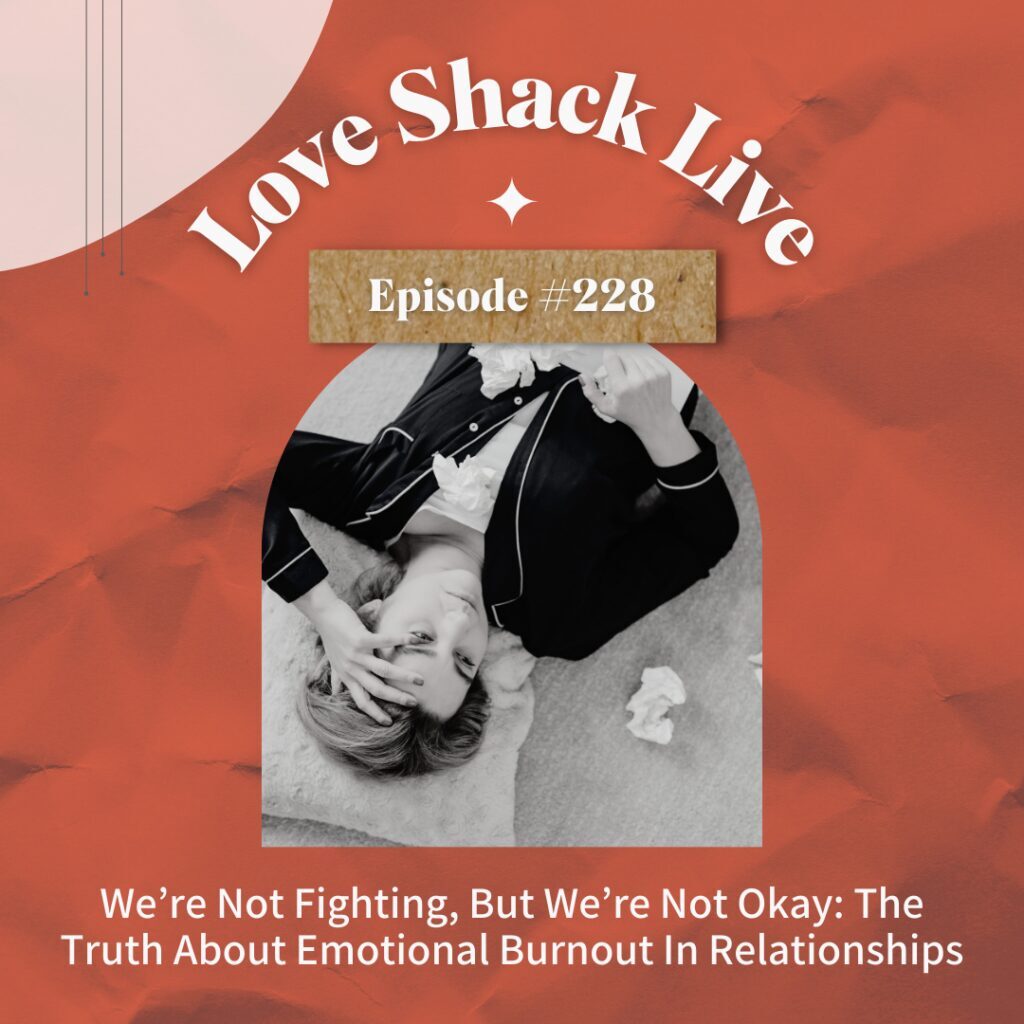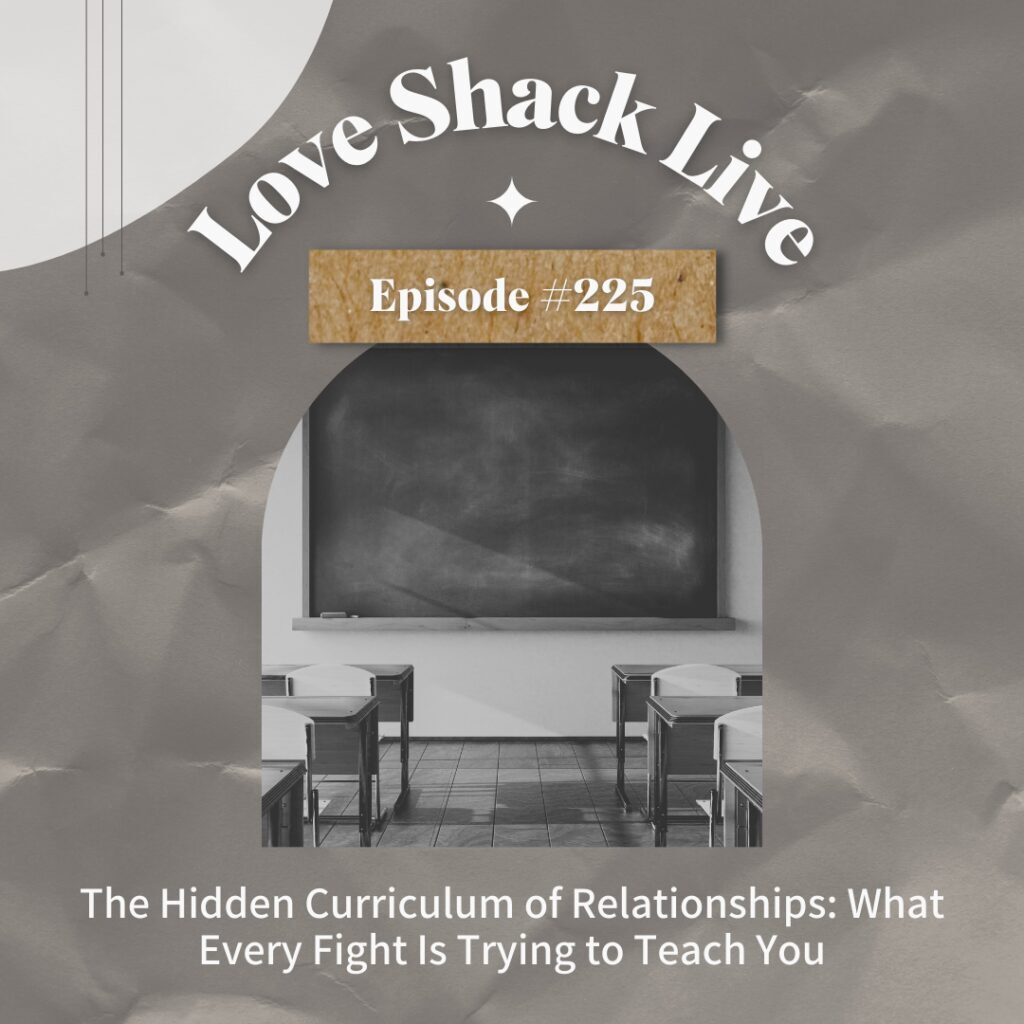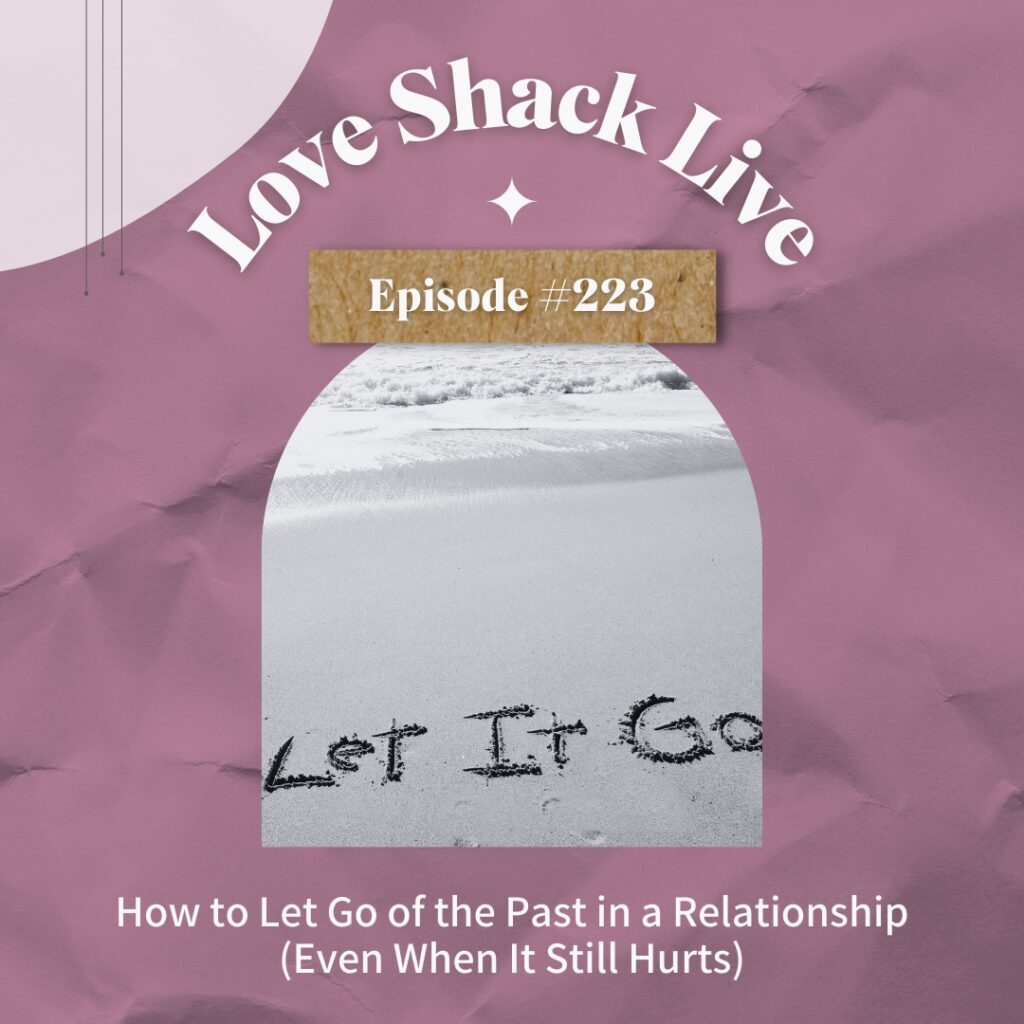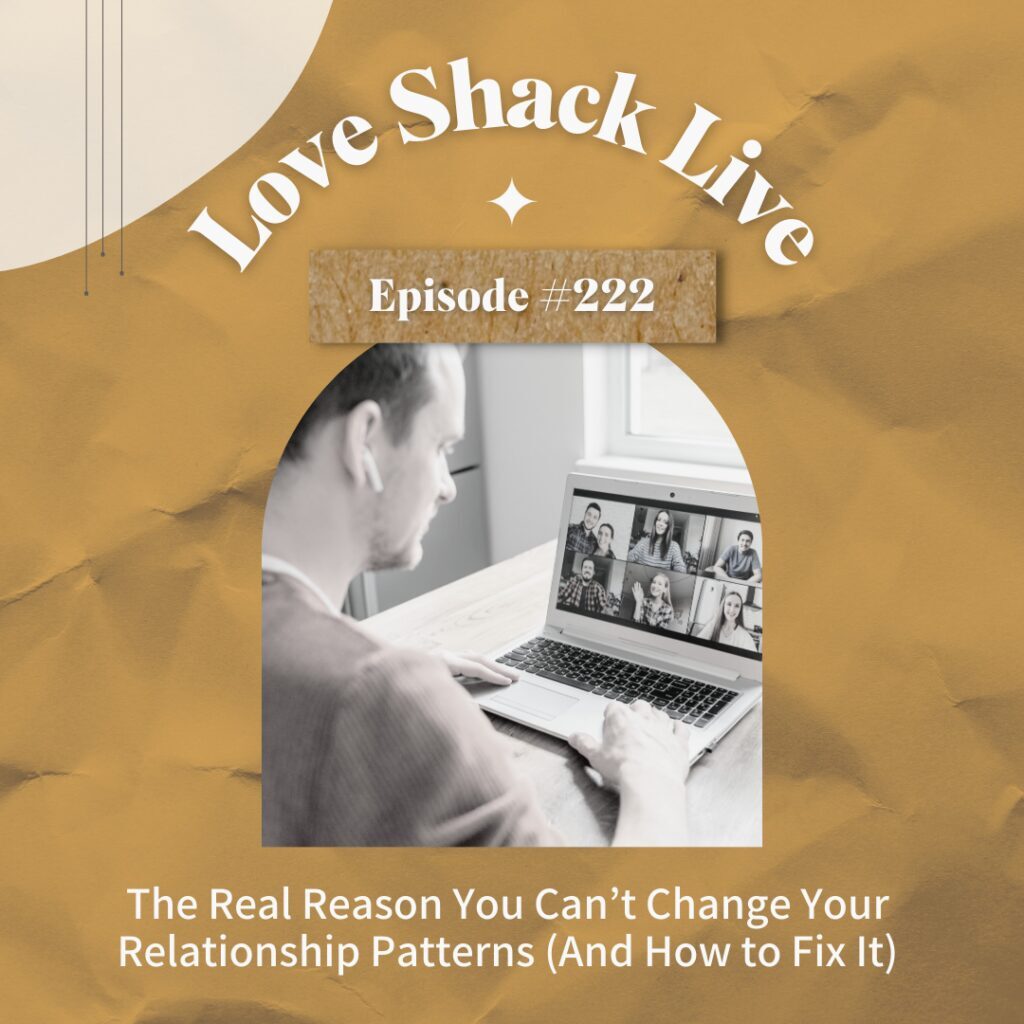#202: The Hard Questions You’re Afraid to Ask in Your Relationship—Answered
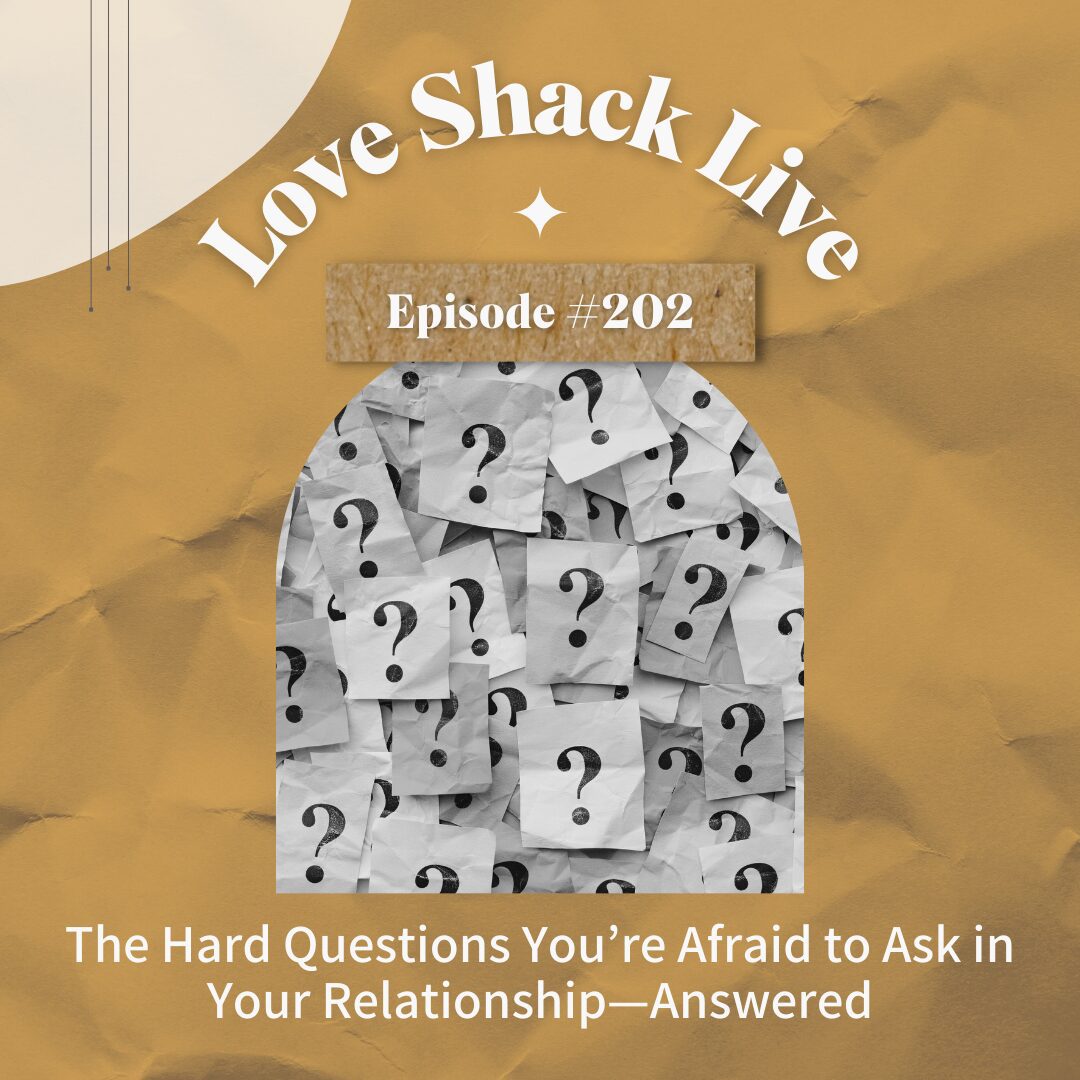
Ever sit across from your partner and feel the distance in the room? That once-warm connection now feels like a stranger, and the simple conversations you once shared seem to be landmines waiting to go off. It’s easy to wonder: Can we fix this? Are we too far gone? These are tough questions, and if you’ve ever felt like you’re alone in facing them, today’s episode is for you.
In Love Shack Live episode #202, we’re tackling the hard questions listeners like you are afraid to ask. These are the questions that keep you up at night, that tug at your heart, that you’re not quite sure how to bring up without fear of causing a blowout. Let’s dive in and unpack some practical ways to address these challenges and bring understanding back into your relationship.
Embracing the Right Questions: “Where Do You Go When I Say This?”
One of the most common frustrations we hear is, “No matter how nice I am, every time I express my feelings, my partner takes it as an attack.” Sound familiar? When your efforts to communicate feel like they’re falling on defensive ears, it’s tempting to just stop trying altogether.
But here’s a powerful shift: Instead of another “I feel” statement, try asking a question. “Where do you go when I say these things?” This simple, open-ended question invites your partner to share their experience and feelings, allowing you to understand their reactions without placing blame. It takes the conversation from explaining your perspective to exploring theirs—a step that can break through defensiveness and build understanding.
Facing Avoidant Attachment: Small Steps Towards Vulnerability
For those who lean on avoidance as a coping mechanism, opening up can feel impossible, especially if you’ve just begun to recognize the patterns that have kept you safe. Here’s the truth: Avoidance is a protective strategy—one that may have helped you in the past but could now be keeping you from the intimacy you crave.
The key isn’t to dive headfirst into every difficult conversation. Start small. Test the waters with low-stakes conversations where you can practice being vulnerable without overwhelming yourself. And here’s a tip from those who have walked this path: Prepare what you need from your partner to feel safe, such as a request for them to simply listen or to remind you that they care before you start. Vulnerability is a skill, and like any skill, it gets easier with practice.
Waitlist: Save Your Marriage: A Blueprint for Avoiding Divorce
Feeling overwhelmed and unsure of how to prevent your relationship from falling apart? Get ready for our biggest sale of the year! By joining the waitlist now, you’ll get exclusive early access to our Black Friday deal, with special pricing and bonuses designed to help you and your partner rebuild trust and reconnect.
Wondering if it’s too late to save your marriage? You’re not alone. Our program offers a step-by-step guide to help you rebuild trust, improve communication, and avoid divorce—even if you feel like you’ve tried everything. Don’t miss out on our limited-time Black Friday offer! Get on the waitlist now to be the first to know when enrollment opens and secure your spot at a special price.
Navigating Emotional Escalation: Embracing the Power of Pause
Have you ever been in a conversation that quickly spiraled out of control? Before you know it, emotions are flying, and all those carefully thought-out points are forgotten in the heat of the moment. One crucial step to handle these moments is learning when to press pause.
Emotional regulation isn’t about ignoring your feelings; it’s about recognizing when you’re reaching the “red line”—that point of no return where calm discussion becomes impossible. Build the habit of checking in with yourself and, if necessary, taking a break. The goal is not to avoid the conversation altogether but to return when both of you can discuss things with a clear head. Setting a specific time to resume the discussion ensures that the pause isn’t avoidance but a strategic way to maintain emotional safety.
Building Trust: Focusing on Internal Stability
Rebuilding trust can be one of the hardest steps in any relationship, especially when there’s a history of dishonesty. And here’s where many of us get it wrong: We wait for our partner to prove they’re trustworthy. But trust isn’t something we can simply measure in another person’s actions; it’s built within ourselves.
The first step in restoring trust is to cultivate your own sense of security. This means committing to the belief that, whatever happens, you’ll be okay. When you approach trust as an inner capacity—your ability to take risks and be vulnerable without needing constant reassurance—you remove the pressure from your partner to constantly prove themselves, creating a more balanced and resilient foundation.
Finding What You Want: Moving Beyond the “Don’t Wants”
When we’re asked what we want, many of us freeze up, or we default to what we don’t want. Knowing what you don’t want can be a helpful starting point, but to create real change, you need to flip that script.
If you’re unsure about your desires, take some time to list all the things you don’t want in your relationship. Then, use each item as a prompt to uncover the opposite—your “wants.” For instance, if you don’t want to feel ignored, the want might be “to feel seen and appreciated.” This exercise can help you get clearer on your needs, setting the stage for more intentional conversations with your partner.
Filling the Void During Separation: Intentional Distractions
Periods of space in a relationship can stir up emotions like nothing else. When separation becomes necessary, the silence can feel like a vacuum that’s begging to be filled. And if we’re not intentional about what fills that void, our minds may flood with anxious thoughts or endless what-ifs.
To manage this, find something that will genuinely engage your mind. Whether it’s a hobby you love, a project you’ve been putting off, or even organizing a part of your home, filling your time with purposeful activities can provide a healthy distraction. This practice helps you stay grounded and less tempted to reach out impulsively or fall into the habit of ruminating on worst-case scenarios.
Trust the Process: Embracing the Ongoing Journey of Growth
No relationship challenge has a quick fix. But that’s the beauty of it—your relationship is a journey, not a destination. Each tough conversation, each moment of self-reflection, each skill you build and practice brings you closer to a richer, more resilient connection with your partner. The small, steady steps are what truly transform a relationship over time.
As you explore these strategies, remember to be gentle with yourself. Growth isn’t about getting everything right; it’s about showing up, trying again, and learning along the way. At Love Shack Live, we’re here to support you in navigating the hard questions and finding answers that bring you and your partner closer, step by step.
Ready to dig deeper? Tune into Episode #202 of Love Shack Live for more insights and real-life examples to help you embrace the conversations you’ve been avoiding. Let’s get through this together.
Podcasts Mentioned In This Episode
Episode 185: https://stacibartley.com/reconnecting-after-separation-rebuild-trust/
Episode 168: https://stacibartley.com/when-trust-falls-apart-betrayal-to-healing/
Episode 139: https://stacibartley.com/rebuild-trust-relationship-recovery/
Episode 131: https://stacibartley.com/beyond-betrayal-rebuilding-trust/
Episode 111: https://stacibartley.com/apologize-in-your-relationship-copy/
Resources mentioned in this episode:
-
Ready to build those essential skills? Join the waitlist for Save Your Marriage: A Blueprint for Avoiding Divorce and be the first to know when enrollment opens. Sign up now at stacibartley.com/waitlist and start learning the tools to transform your relationship.
- Relationship Conversation Cards: Enhance your communication and deepen your connection with our Relationship Conversation Cards. stacibartley.com/cards

